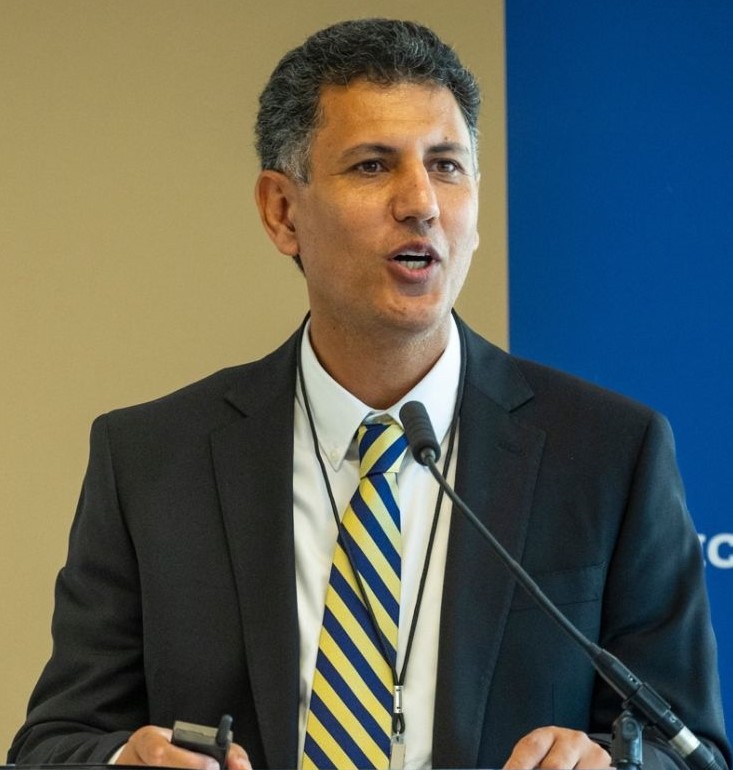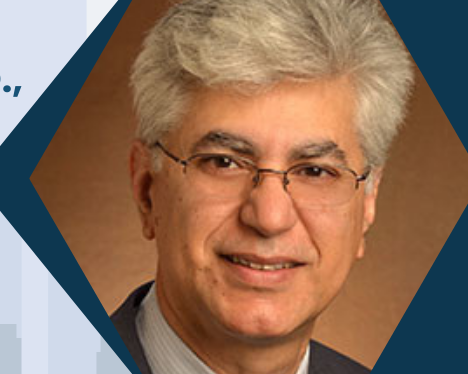2024 Events
| 2024 | 2023 | 2022 | 2021 | 2020 | 2019 | 2018 | 2017 | Sponsored Conferences/Workshops |

Leveraging Artificial Intelligence Tools for Development and Deployment of Autonomous Vehicles in Rural and Suburban EnvironmentsCo-hosted by FMRI & the ITE FAU Student Chapter Join us for an insightful seminar presented by Dr. Ali Karimoddini, Professor, Electrical and Computer Engineering Department, North Carolina A&T State University, who will cover both theoretical developments and experimental results, particularly in areas such as lane detection and tracking under difficult conditions (e.g., faded or missing lane boundaries), detection and response to vulnerable road users (e.g., pedestrians), and robust control on challenging terrains (e.g., steep inclines or sharp turns). Additionally, insights from recent deployments of microtransit AVs at the rural AV test track at NCA&T, as well as on public roads in underserved communities of Greensboro, will be shared. These efforts aim to enhance mobility and connect residents of disadvantaged areas to vital establishments in downtown Greensboro. |

Transforming Transportation Safety with AI ApplicationsFMRI & Co-hosted by the WTS FAU Student Chapter Join us for an insightful seminar presented by Dr. Asad J. Khattak, who will explore the application of cutting-edge AI and statistical techniques in improving transportation safety. With over 43,000 traffic-related deaths annually in the US, AI offers new opportunities to create safer transportation systems. This presentation will cover: 1) Safe Vehicles: Identifying “edge-cases” for automated vehicles using unsupervised learning and trajectory time generative adversarial networks; 2) Safe Drivers: Using computer vision techniques to monitor driver head poses and detect safety-critical events; 3) Safe Roadways: Accurately predicting future crashes using heterogeneous ensemble methods. Presented by Dr. Asad J. Khattak, Alvin and Sally Beaman Distinguished Professor of Civil and Environmental Engineering at The University of Tennessee, Knoxville, USA. He is the Associate Director for the Collaborative Sciences Center for Road Safety—a US-based National University Transportation Center led by the University of North Carolina-Chapel Hill. |

Highway Capacity Analyses Made Simple – Introducing the HCM Reference GuideFMRI & Co-hosted by the ITE FAU Student Chapter For decades, the Highway Capacity Manual has been an essential standard for evaluating the capacity and level of service of several road elements. As the methods evolved, so did the complexity of its calculations. The current release (7th Edition) has 38 chapters and 2,500+ pages, which may be intimidating for those who do not work with it on a daily basis. The HCM Reference Guide, published in 2022, is a concise document intended to provide essential knowledge to those analyzing or reviewing studies based on the HCM. It supplements, fills gaps, further explains, and provides key insights into some complex procedures that are often misunderstood. This webinar will provide an overview of the HCM Reference Guide and discuss potential applications of this document. Presented by Fabio Sasahara, Associate Director at McTrans Center at the University of Florida. |

Enhancing Transportation Safety and Infrastructure Intelligence Through Customized AI and Edge ComputingFMRI & Co-hosted by the ITE FAU Student Chapter This presentation will explore the pivotal role of Artificial Intelligence (AI) in enhancing road transportation systems, boosting infrastructure intelligence, and improving transportation safety. Given that transportation networks extend across both urban and rural areas, the limitations in bandwidth and the costs associated with the communication network may prevent the timely transfer of all roadway data for processing in the cloud or on a server. Furthermore, numerous transportation applications, such as those involving connected vehicles, demand near-real-time responses to guarantee safety and efficiency. Consequently, there's a significant push towards processing, storing, and analyzing data at the edge—closest to where data is produced or utilized—giving rise to a rapidly expanding research area known as edge computing. Dr. Yinhai Wang, professor at the University of Washington (UW), will provide real-world examples to demonstrate how tailored AI approaches are developed and implemented on edge computing platforms to boost transportation safety and infrastructure intelligence. Opportunities of AI research and applications as well as potential challenges with AI, such as concerns related to privacy, security, and equity, will also be discussed in this talk. |

Key Aspects of Decision Making in TransportationFMRI & Co-hosted by the WTS FAU Student Chapter This online webinar will feature Dimitrios J. Dimitriou and Dr. Maria Sartzetaki. |